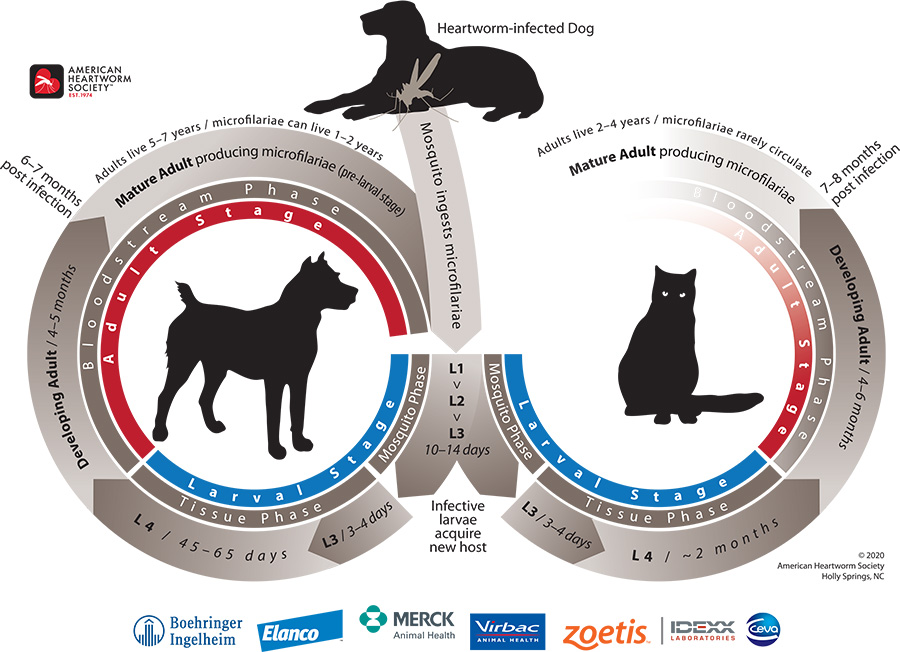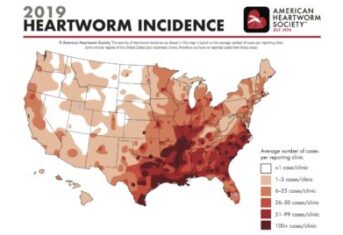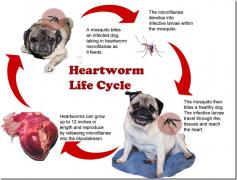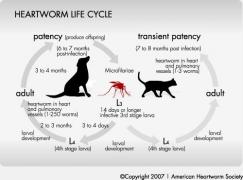Ivermectin: An Important Veterinary Medication

Ivermectin: An Important Veterinary Medication
April is Heartworm Awareness Month, and I think it’s a good time to talk about ivermectin. As you may recall, ivermectin was all over the news during the height of the pandemic as an unproven treatment for COVID-19. Most people had never heard of this drug, however many dog owners have ivermectin in their kitchen cabinet in the form of heartworm preventative.
A Nobel Prize Winning Medication
In 2015, the Nobel Prize in Physiology or Medicine was awarded to William C. Campbell and Satoshi Omura for their discovery of a novel therapy against infections caused by roundworm parasites. The diseases caused by these parasites affect some of the world’s poorest populations, causing Elephantiasis and River Blindness. The discovery resulted in avermectin, the protype drug of this class of anti-parasite medications from which ivermectin is derived.
Preventing Heartworms with Ivermectin
Dogs become infected with heartworms when a mosquito carrying juvenile heartworms injects the developing worms into a dog. The juvenile heartworms migrate to the blood vessels of the lungs and mature into spaghetti-like worms. The term “heart”worms is a misnomer. Dirofilaria immitis, the scientific name for heartworm, lodge in the blood vessels of the lungs. In severe cases, they spill over into the heart, giving them a descriptive, but incorrect name. The juvenile heartworms are very susceptible to ivermectin, which is why veterinarians prescribe a monthly regimen. Ivermectin, selamectin, milbemycin oxime and moxidectin are all members of the avermectin class of drugs. If your dog receives monthly heartworm preventative, he receives one of these medications.
Ivermectin Targets All Long, Round, Skinny Worms
Ivermectin and the other closely related drugs have broad activity against a variety of parasitic worms, including hookworms, whipworms and roundworms, which infect the intestines of dogs and cats. The human worms causing Night Blindness and Elephantiasis are also roundworms. If you read the label of your pet’s monthly heartworm medication, it may say the medication is effective against other worms like tapeworms. Tapeworms are flat, not round, and are not killed by ivermectin. Instead, they are targeted by other medication that is included in your dog’s heartworm preventative.

Avermectins For Fleas and Ticks Too
Even though fleas and ticks are not spaghetti-like worms, some drugs in the ivermectin family will kill fleas, ticks and ear mites. If the heartworm medication is not effective against fleas and ticks, it will be combined with flea and tick preventative to create a single once-a-month parasite medication that prevents against both internal and external parasites.
The Companion Animal Parasite Council and the American Heartworm Society recommend year-round heartworm preventative and flea and tick prevention. Talk to your veterinarian about what medication is right for your pet.

































